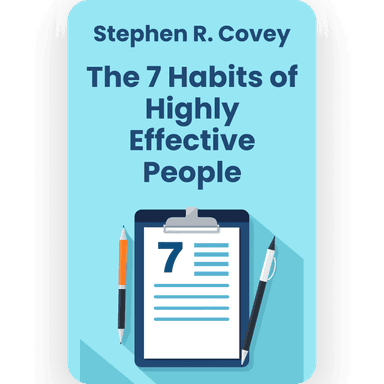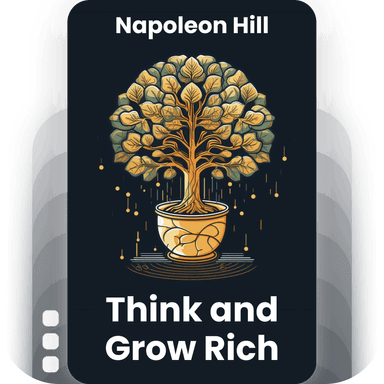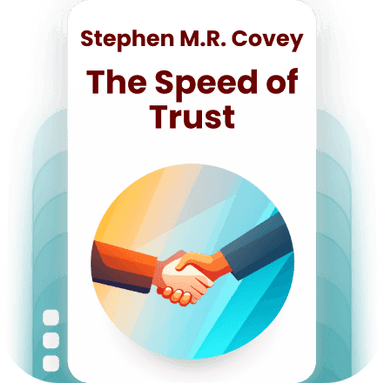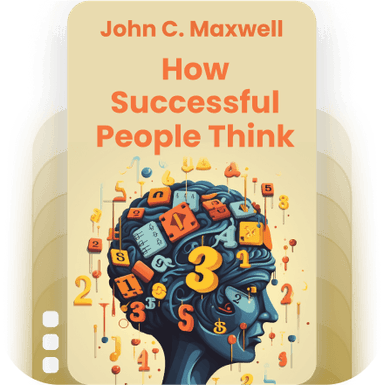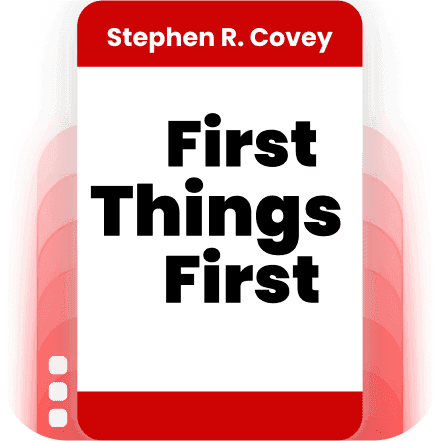
First Things First
Stephen R. Covey
4.4 - 5 ratings
10
List Points
10
Chapters
5
Topics
Description
In this insightful guide, Stephen R. Covey presents a transformative approach to time management that shifts the focus from mere efficiency to aligning daily activities with one's most important values and priorities. He introduces the concept of the 'four quadrants' to help individuals distinguish between urgent and important tasks, advocating for an emphasis on Quadrant II activities—those that are important but not urgent—as the key to achieving meaningful productivity and a balanced life. Covey's principles encourage readers to prioritize personal and professional goals that bring long-term fulfillment, urging a focus on proactive planning, and the nurturing of relationships, self-care, and personal growth over reactive, short-term tasks.
What will you learn?
By reading this book, you will gain a comprehensive framework for prioritizing your life's most important tasks and achieving greater personal and professional effectiveness. The authors introduce a shift from traditional time management to a focus on aligning your daily actions with your deepest values and long-term goals. You will learn practical strategies for overcoming the urge to respond to urgent but less important tasks, empowering you to concentrate on what truly matters and leading to a more balanced, fulfilling life.
Who’s it for?
• Time management enthusiasts
• Professionals seeking work-life balance
• Self-improvement seekers
• Leaders and managers
• Individuals feeling overwhelmed by daily tasks
Categories
Key Learning
Available chapters to listen for this topic- 1
The Clock and the Compass
Understanding the Distinction Between Urgency and Importance and How to Align Personal Missions with Daily Activities to Achieve a Balanced Life. - 2
The Quadrant II Paradigm
Focus on Activities That are Important but Not Urgent to Achieve Long-term Success and Fulfillment by Breaking Free from the Tyranny of the Urgent. - 3
Importance of Roles and Goals
Identify and Prioritize Key Roles in Personal and Professional Life and Set Meaningful, Aligned Goals for Each to Achieve Harmony and Effectiveness. - 4
Living from the Inside Out
Emphasize Personal Leadership and the Power of Personal Mission Statements to Drive Daily Actions and Long-Term Aspirations by Aligning with Core Values. - 5
The Power of Weekly Planning
Use a Weekly Perspective to Organize and Schedule Priorities Effectively, Balancing Various Life Roles and Ensuring Focus on Quadrant II Activities. - 6
Integrity in the Moment of Choice
Develop the Discipline to Make Principle-Centered Decisions in Real-Time Situations by Holding Firm to Your Personal Mission and Established Priorities. - 7
Delegation
Master the Art of Effective Delegation Through Stewardship Delegation, Empowering Others While Creating Synergy and Preserving Time for High-Importance Activities. - 8
Learning to Say No
Cultivate the Courage and Wisdom to Say No to Less Important Tasks and Demands, Ensuring Time and Energy are Reserved for Top Priorities and Significant Opportunities. - 9
The Synergy of Interdependence
Recognize the Power of Combining Efforts, Resources, and Talents from Multiple Perspectives to Create Outcomes Greater than the Sum of Individual Contributions. - 10
Renewal and Balance in Life
Engage in Continuous Personal Renewal Across Four Dimensions—Physical, Spiritual, Mental, and Social/Emotional—to Maintain Balance, Resilience, and Sustained Effectiveness.








